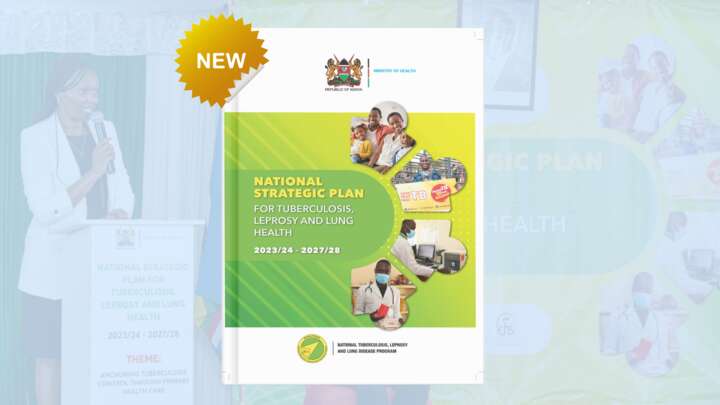
Author: Leyla Abdullahi, PhD
Tuberculosis (TB) continues to be a major public health challenge worldwide, while disproportionately affecting men in low- and middle-income countries. Factors such as poverty, poor environment and housing, food insecurity, lack of education, financial hardship, and psychosocial issues have been reported to exacerbate inequities that affect health-seeking behaviours and increase susceptibility to TB among men. These issues underscore the need for targeted interventions, addressing social determinants of health, and promoting equitable access to TB prevention, diagnosis, and treatment services, particularly for vulnerable populations.
In recognising various gender disparities in TB programming and efforts to address the rising challenges among men, the National Strategic Plan (NSP) for Tuberculosis, Leprosy, and Lung Health 2023/24 – 2027/28 of the Kenyan Ministry of Health Kenya’s TB programme has captured a clear roadmap towards achieving equitable, gender-transformative access to services especially among marginalised and vulnerable groups. The NSP development started with the end-term evaluation of previous strategic plans that were measured against the current activities undertaken by the TB programme. The assessment generated valuable insights including in the area of Human Rights and Gender (HRG), where the three top gaps identified are the lack of TB-specific costed operational framework for gender-transformative and human rights activities; lack of county-level strategic plans that address human rights and gender transformative issues; and lack of knowledge on HRG at all levels of implementation.
Importantly, the end-line assessment noted a gap in the previous NSP 2019-2023 that lacked specific directives to tackle gender-specific barriers. The lack of a gendered-transformative approach in the NSP 2019-2023 resonates with the policy analysis study conducted by the Leaving no-one behInd transforming Gendered Pathways to Health for TB (LIGHT) Consortium in 2021 that showcased a similar gap. Since 2020, the Division of National Tuberculosis, Leprosy, and Lung Disease Program (DNTLD-P) has worked closely with the LIGHT consortium to further understand the status of TB and gender in Kenya. Through stakeholder consultative forums, the team has co-created opportunities addressing TB access and care, as well as future direction on gendered pathways to health for TB. The LIGHT research programme funded by UK aid, is a consortium of seven partners from Nigeria, Kenya, Malawi, Uganda, and the United Kingdom that aims to provide new evidence on the effectiveness of different gender-transformative pathways to health for those with TB in urban, HIV-prevalent settings.
The DNTLD-P works closely with stakeholders to ensure gender equity and a rights-based approach to addressing human rights and gender-related barriers. Through the implementation of the NSP 2023/24–2027/28, Kenya looks forward to reaching the goal of equitable, gender-transformative access to services through its programming in the coming years. Some of the recommended actions toward reducing barriers faced by vulnerable populations and implementing the HRG include:
- Identifying key and vulnerable populations for TB at the county level
- Implementing TB innovative interventions and activities targeting men who are at a higher risk for TB, especially at their workplaces
- Addressing sociocultural barriers impeding men from accessing healthcare
- Addressing sociocultural barriers impeding women and children from accessing healthcare
- Creating awareness of TB HRG and reduce HRG-related barriers including stigma
- Adapting global HRG policies to the Kenyan context
Through monitoring and evaluation of gender-transformative approaches, Kenya’s county and national stakeholders led by DNTLD-P will ensure that women and men have access to TB services and are not stigmatised for seeking care.
Leaving no-one behInd: transforming Gendered pathways to Health for TB (LIGHT) Consortium is a six-year cross-disciplinary global health research programme funded by the UK government. It is led by the Liverpool School of Tropical Medicine (LSTM) working with partners in Kenya, Malawi, Nigeria, Uganda and the UK. The African Institute of Development Policy (AFIDEP) and Respiratory Society of Kenya (ReSoK) lead the work of the consortium in Kenya. The Consortium provides evidence on the effectiveness of different gender-responsive pathways and approaches to health for those with TB in urban settings.
